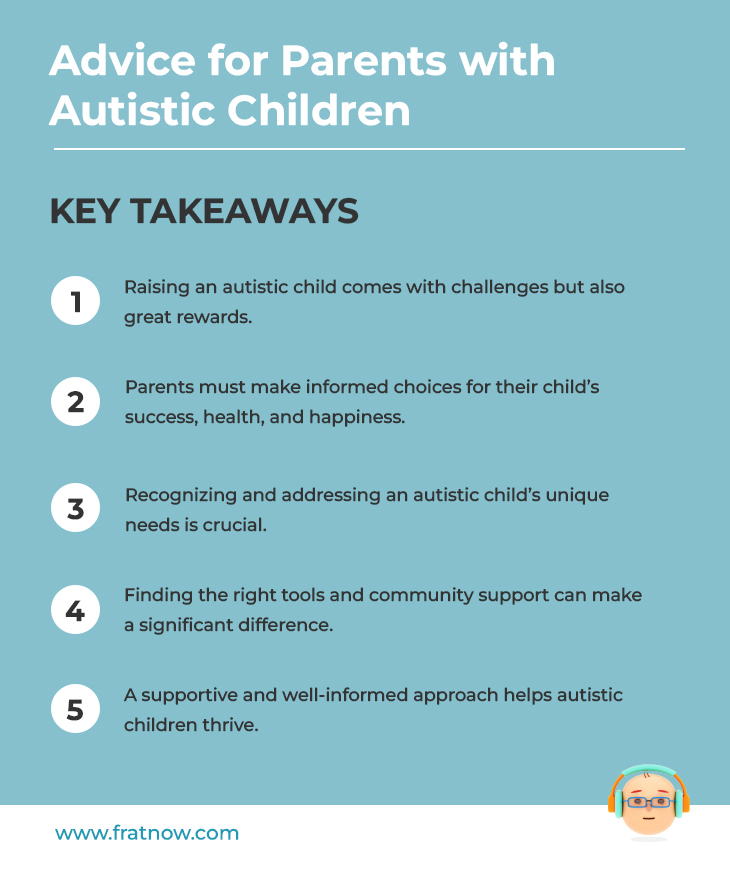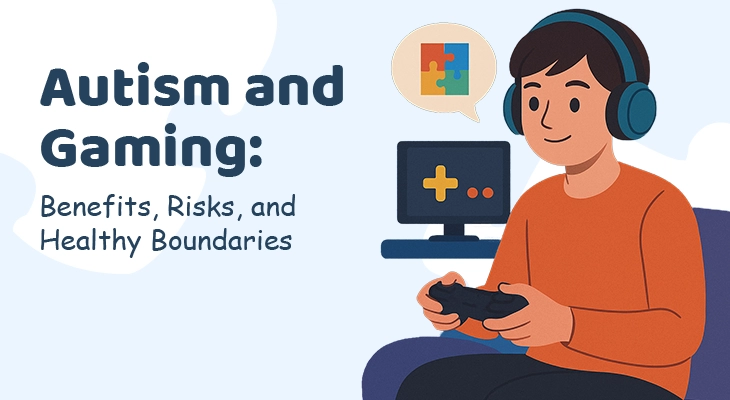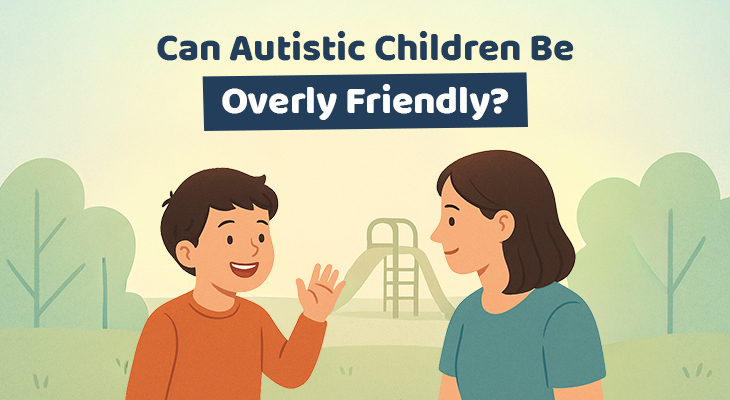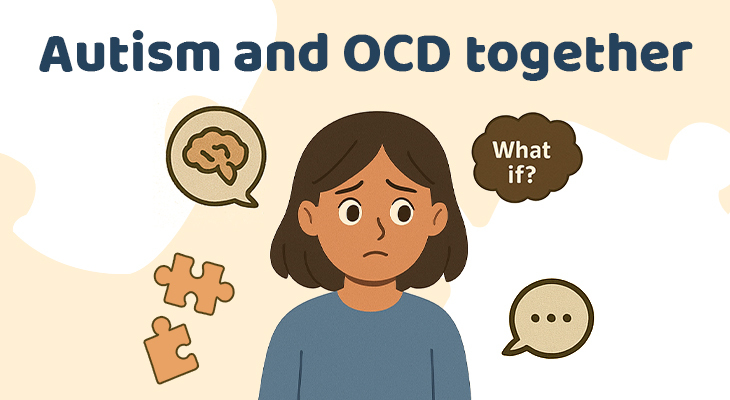
Download Download & share this Knowledge card in your network [Free Download]
Table of Contents
- Introduction
- Don’t be afraid to ask for help
- Establish a daily routine
- Create a calming environment
- Be consistent with discipline
- Use visual aids
- Be patient
- Encourage communication
- Promote social interaction
- Teach self-care skills
- Conclusion
- Did You Know About Folate Receptor Autoantibodies (FRAAs) and Brain Development?
Introduction
Raising an autistic child can be challenging, but it can also be incredibly rewarding. As a parent, many decisions need to be made to ensure your child’s success, health, and happiness. To help guide you through the process, this blog post will provide pieces of advice for parents with autistic children.
From understanding your child’s unique needs to finding the right resources and support, these tips will help you create the best possible environment for your autistic child.

Download Download & share this infograph card in your network [Free Download]
1. Don't be afraid to ask for help
As a parent of an autistic child, you may feel overwhelmed and unsure of how to support them. It is important to remember that you are not alone in this journey, and there are many resources available to help. Reach out to family members and friends, as well as autism support groups and organizations.
Additionally, find out what services are available in your community, such as special education programs, occupational therapy, and speech-language pathology.
You can also enlist the assistance of a professional therapist to provide guidance and assistance for both you and your child. Don’t be afraid to ask for help when needed. With the right support, you can help your child reach their full potential.
2. Establish a daily routine
Routines are important for children with autism as they help promote a sense of security and understanding. Setting up a routine helps them understand what to expect and can help reduce anxiety and confusion.
Start by setting up a daily schedule that includes simple tasks like brushing your teeth, having breakfast, and getting dressed. Provide visual cues such as a calendar or picture cards to help your child stay on track. Make sure to have some flexibility in the schedule and be willing to adjust it if needed.
Give your child ample time to complete tasks and provide positive reinforcement when they do so. Make sure to have time for fun activities and make the schedule something your child can look forward to. With practice, your child will learn to enjoy their daily routine.
3. Create a calming environment
Creating a calm and peaceful home environment is essential for parents with autistic children. Minimize distractions in your home such as loud music or lots of visitors. Instead, provide a quiet space that can be used for calming activities like coloring or reading.
Keep the temperature comfortable and ensure there are no bright lights or too much visual stimulation. If your child is overstimulated, try breathing exercises, a warm bath, and playing soothing music to help them relax.
Take time to listen to your child’s needs and respond to them accordingly. By creating an atmosphere of peace and relaxation, you will be able to help your child better manage their emotions.
4. Be consistent with discipline
It is important to set clear rules and consequences for your child with autism. Stick to these consistently, and avoid punishing outbursts. Instead, provide a quiet, distraction-free environment and give them time to calm down.
Make sure that your expectations are realistic for their developmental level. Explain the rules in simple terms and make sure that everyone in the household follows them.
Provide positive reinforcement when they display the desired behavior, such as verbal praise or a small reward. Establishing a consistent disciplinary approach can help your child with autism to understand the limits and boundaries you have set.
5. Use visual aids
Visual aids can be a powerful tool when helping your autistic child learn new skills and manage behavior. Visual aids can range from simple illustrations to detailed charts and graphs. By providing visual representations of tasks and expectations, you can help your child better understand what is expected of them.
Additionally, by providing tangible examples of what is expected, your child can find comfort in the predictability of the situation. Visual aids can also be used to help track progress or provide reminders of goals.
This will help your child build confidence in themselves and foster feelings of accomplishment. Utilizing visual aids can be an invaluable part of helping your autistic child understand their world.
6. Be patient
Patience is key when it comes to parenting children with autism. It is important to understand that your child is processing the world differently and that this can lead to behaviors that are unexpected or challenging.
When faced with challenging behavior, take a step back and take a breath before responding. Remember that your child is likely overwhelmed, and you need to stay calm to help them through it.
Additionally, don’t be afraid to give them time to process new information and instructions. Lastly, look for small successes, even if they don’t seem important – celebrate these moments to show your child that you are proud of them and willing to work together.
7. Encourage communication
It is important to encourage communication in autistic children. Talk to them in a calm, positive manner and use simple language.
Ask open-ended questions that require more than a yes or no answer. Focus on topics they are interested in, such as cartoons or books they are reading. Establish eye contact and be willing to listen.
Point out objects and name them to help with vocabulary building. Give children a chance to answer questions before providing the answer yourself. Praise any attempts at communication, no matter how small. With patience and consistency, you can foster meaningful communication with your child.
8. Promote social interaction
Encourage your autistic child to engage with family and friends. Set up playdates, or invite other children to join in on activities.
Communicate openly with your child about their social interactions and provide feedback and encouragement. Create a safe environment for them to practice new skills.
9. Teach self-care skills
Encouraging your autistic child to take care of themselves is important. Make sure they learn basic personal hygiene, such as brushing their teeth, washing their hands, and taking showers. Teach them how to dress and eat independently.
Reinforce these skills with rewards or praise. Learning self-care can increase their independence and help build their self-esteem.
Conclusion
FRAT® (Folate Receptor Antibody Test) is a patented diagnostic blood test that screens for antibodies to the Folate Receptor Alpha (FRa). FRAT® is an important tool in assessing your child’s neurological health. It is a simple test with sophisticated results.
For information on autism monitoring, screening and testing please read our blog.




